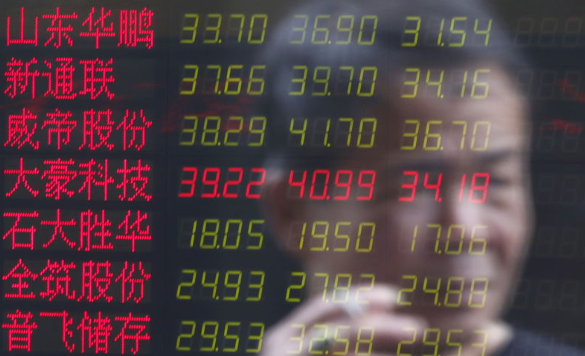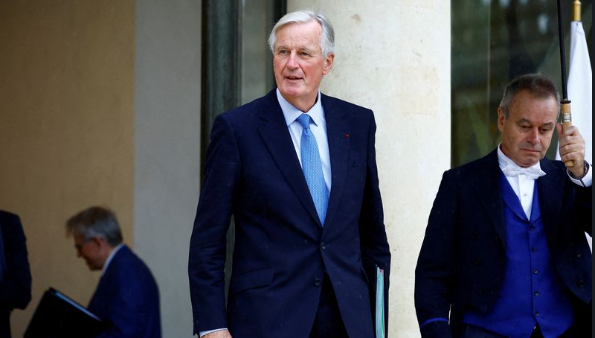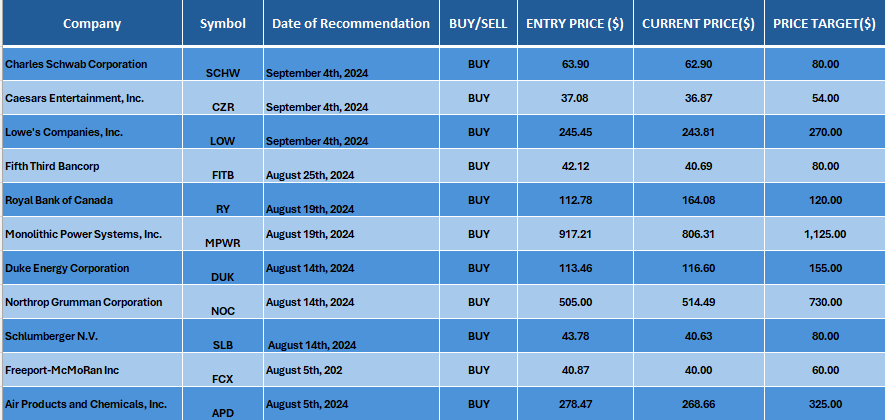
Date Issued – 30th September 2024
Chinese stocks surged by 6% as manufacturing contraction slowed, while Japan’s Nikkei tumbled over 4%
China’s markets rallied on Monday with a remarkable 6% gain as manufacturing data showed signs of resilience, while Japan’s Nikkei 225 plunged over 4% amidst political uncertainty. Investors closely examined the latest economic indicators from both nations.
China’s official manufacturing PMI for September stood at 49.8, slightly above the 49.5 forecast by Reuters’ economists. Though still in contraction territory for the fifth consecutive month, the data offered a glimmer of hope, leading to a 6.22% rise in the CSI 300, with property stocks soaring by 7.4%. Similarly, Hong Kong’s Hang Seng index surged 3.34%, led by a strong performance from consumer sectors, and the Hang Seng Mainland Properties Index skyrocketed by 8%.
On the other hand, Japan’s Nikkei 225 suffered a significant drop of 4.64%, triggered by a combination of weak economic data and the political aftermath of last Friday’s ruling Liberal Democratic Party election. Real estate stocks led the decline, and Isetan Mitsukoshi Holdings, a major department store operator, saw its shares plummet by 11%. The Topix index followed suit, dropping 3.3%. Compounding the losses, Japan’s industrial production for August dropped 4.9% year-on-year, far exceeding the previous month’s 0.4% decline. On a month-to-month basis, the drop was even sharper, at 3.3%.
Adding to Japan’s woes, the yen weakened further by 0.13%, trading at 142.38 against the U.S. dollar. Meanwhile, retail sales grew by 2.8% year-on-year in August, slightly beating the 2.3% forecast, but not enough to uplift market sentiment following Shigeru Ishiba’s election victory, positioning him as the next Prime Minister to succeed Fumio Kishida.
Elsewhere in Asia-Pacific, Australia’s S&P/ASX 200 rose 0.72%, reaching an all-time high of 8,246.2. South Korea’s Kospi and Kosdaq indexes saw declines of 1.13% and 1.21% respectively.
In the U.S., stocks showed mixed results on Friday. The Dow Jones Industrial Average edged up 0.33% to close at a record high of 42,313.00, driven by positive inflation data. The Federal Reserve’s preferred inflation gauge, the personal consumption expenditures (PCE) price index, matched expectations with a 0.1% monthly rise, translating to an annualized increase of 2.2%, slightly below the forecast of 2.3%. Meanwhile, the S&P 500 slipped 0.13%, and the Nasdaq Composite lost 0.39% as traders digested the latest developments in the inflation fight.
This week’s market moves highlight the balancing act investors face as they navigate the complex interplay between inflation trends, political changes, and fluctuating economic indicators across key global markets.
BYD Initiates Recall of 97,000 Best-Selling EVs Over Steering Component Defect, Regulator Reports
SHANGHAI – Chinese automaker BYD is recalling nearly 97,000 electric vehicles (EVs) due to a defect in the steering control unit that poses potential fire risks, according to a statement released by the State Administration for Market Regulation (SAMR) on Sunday.
The recall affects BYD’s popular Dolphin and Yuan Plus models, which were manufactured in China between November 2022 and December 2023. These two models have been top sellers for the company, collectively representing 26% of BYD’s 3 million vehicle sales in 2023, based on data from the China Association of Automobile Manufacturers. While BYD has yet to comment on the recall, the company has informed regulators that dealers will be responsible for implementing a physical fix to resolve the issue. The SAMR statement did not clarify whether any of the affected vehicles were exported to international markets.
This recall is a rare move for BYD, which has rapidly ascended to become the world’s largest seller of electric and plug-in hybrid vehicles. Prior to this, the company recalled a small batch of Tang plug-in hybrids in 2022 due to a battery pack defect that also raised fire safety concerns. As BYD continues its global expansion, this recall highlights the importance of quality control in the fast-growing electric vehicle industry, where safety and reliability remain paramount.

French Government Mulls New Taxes on Large Corporations to Tackle Deficit, Le Monde Reports
The French government is considering imposing new taxes on large corporations to address the country’s growing budget deficit, according to a report by Le Monde. The finance ministry is reportedly weighing an 8.5% temporary tax on companies generating more than €1 billion ($1.1 billion) in revenue, along with an 8% tax on stock buybacks based on the reduction in capital value. Personal income taxes would remain stable, while public spending is expected to be cut, the report says. These measures come as Prime Minister Michel Barnier, appointed by President Emmanuel Macron earlier this month, prepares to unveil his economic priorities in a key speech to parliament on Tuesday. The 2025 budget, set to be presented around October 9, will likely include these new proposals aimed at curbing the fiscal shortfall, which has exceeded 6% of GDP this year.
The potential tax hikes, however, face opposition from within Macron’s own camp. Over the weekend, 27 lawmakers from his party voiced their concerns in La Tribune, warning that new levies on corporations could contradict the president’s pro-business stance, which has long advocated against increasing taxes on companies and affluent households. A spokesperson for the finance ministry declined to comment on the specifics of the report, while Barnier’s office did not immediately respond to inquiries. Still, the urgency for action is mounting as France faces the risk of losing its standing as one of Europe’s most stable bond markets.
The political landscape remains tense, following Macron’s snap elections in June, which resulted in a fragmented National Assembly composed of three sharply divided blocs. The president’s loss of a relative majority has left the government in a precarious position. Barnier, appointed after months of indecision, faces the possibility of a no-confidence vote, particularly as far-right leader Marine Le Pen weighs joining forces with the left-wing opposition to challenge his government. In light of these political challenges, the government may introduce a rectification finance bill later this year to fast-track the proposed taxes. According to Le Monde, this could involve a temporary 8.5% surcharge on corporate profits, effectively raising the tax rate on large firms to 33.5%, a level not seen since Macron’s tax cuts. The measure could generate an estimated €8 billion.
Additionally, the proposed 8% tax on stock buybacks would apply to companies with revenues exceeding €1 billion, potentially yielding €200 million annually. Further revenue-generating measures being considered include increasing environmental taxes, such as the ecological bonus-malus levy on vehicles and a tax on heavy vehicles, as well as introducing higher rates on furnished housing rentals. With France’s budget deficit ballooning and political pressure intensifying, Barnier’s upcoming speech and the 2025 budget bill will play a crucial role in shaping the country’s fiscal future amidst economic and political turbulence.
Fed Chair Powell to Address Economic Risks as Economists Highlight Concerns Over Policy Mistakes, Election Uncertainty
NASHVILLE, Tennessee – As Federal Reserve Chair Jerome Powell prepares to address the National Association for Business Economics (NABE) on Monday, economists are increasingly concerned that a potential misstep by the central bank in managing interest rates could undercut the U.S. economy in the year ahead. According to a new NABE survey of 32 professional forecasters, 39% see a “monetary policy mistake” as the greatest downside risk to the U.S. economy over the next 12 months. This concern outweighs other risks such as the upcoming U.S. presidential election, cited by 23% of respondents, and geopolitical conflicts in Ukraine and the Middle East, which also garnered 23% of concerns. The survey underscores the intense focus on the Federal Reserve’s policy decisions as it navigates the delicate balance between bringing inflation down to its 2% target and avoiding a significant rise in unemployment.
Powell is expected to speak at 12:55 p.m. CDT (1755 GMT) in Nashville, where he will likely address the Fed’s recent decision to reduce its benchmark interest rate by half a percentage point in September. Markets are keenly watching for hints on future rate cuts, with the Fed expected to lower rates again, potentially by a quarter or half percentage point, at its November 6-7 policy meeting. The Fed’s handling of inflation has been closely scrutinized, as the central bank attempts to engineer a “soft landing” for the economy. Despite inflation peaking above 7% in 2022, it has since fallen to 2.2% without triggering a recession or significant rise in unemployment. While the jobless rate has ticked up slightly from historic lows of 3.4% last year to 4.2%, it remains well below long-term averages.
However, concerns persist over whether the Fed will be able to strike the right balance between controlling inflation and maintaining economic growth. Opinions among economists are divided on whether the current interest rate policy is appropriate, with 65% of respondents stating the recent rate cut came “just in time.” Yet, only a third believe the current rate is “just right.” Another third argue the rate should be lower than 4.75%, while 30% think it should be 5% or higher.
The NABE survey also highlighted broader concerns about economic risks in the coming year. While a majority (55%) believe the economy is more likely to perform worse than expected, U.S. GDP growth is still forecasted to slow from 2.6% this year to 1.8% in 2024. Unemployment is expected to rise modestly to 4.4%, with inflation predicted to settle at 2.1%. In addition to monetary policy risks, the upcoming U.S. presidential election adds another layer of uncertainty. The NABE panel was divided over which election outcome posed the greater threat to the economy. A Republican sweep of the White House and Congress was seen as a downside risk by 13% of respondents, while 10% felt the same about a Democratic sweep. Conversely, 7% of respondents viewed a unified government under either party in a positive light.
The political landscape’s impact on the economy is further complicated by the possibility of divided government, which 17% of respondents viewed as a negative risk, while 13% saw it as a potential upside. As Powell takes the stage, his comments are expected to shed light on how the Fed plans to navigate these intertwined economic and political challenges as 2024 approaches.
Oil Prices Climb Amid Middle East Tensions as Israel Intensifies Strikes
SINGAPORE – Oil prices continued to rise on Monday as escalating conflict in the Middle East stoked concerns about potential supply disruptions from key oil-producing regions. Following increased Israeli attacks on Iranian-backed forces, market fears over the stability of the region have intensified, pushing prices higher.
Brent crude futures for November delivery rose by 51 cents, or 0.71%, to $72.49 per barrel as of 0330 GMT, just ahead of the contract’s expiration. The more actively traded December contract climbed 50 cents, or 0.7%, to $72.04. U.S. West Texas Intermediate (WTI) crude also gained, adding 43 cents, or 0.63%, to reach $68.61 per barrel. Despite last week’s declines—when Brent dropped by around 3% and WTI by 5%—Monday’s gains were driven by fears that an expanding conflict in the Middle East could affect oil supply. Israel’s recent attacks on Hezbollah and Houthi groups, both backed by Iran, a significant OPEC member, have raised concerns about potential disruptions to global oil production.
Analysts, including Priyanka Sachdeva from Phillip Nova, noted that while market supply surpluses remain a concern, the possibility of an escalating Middle East crisis is causing broader market anxiety. Any disruption from this key production hub could have significant consequences for global oil markets. Israel’s bombing of Houthi targets in Yemen over the weekend, as well as its killing of Hezbollah leader Sayyed Hassan Nasrallah in Lebanon, mark a serious escalation in the regional conflict. Meanwhile, the U.S. has bolstered its military presence in the Middle East, with Defense Secretary Lloyd Austin authorizing reinforcements in response to potential threats from Iran and its proxies.
Market experts, such as Tony Sycamore from IG, expect oil prices to remain volatile as geopolitical tensions continue. He noted that the upcoming expiration of OPEC+’s voluntary supply cuts on December 1 may push WTI prices toward their 2021 lows in the $61 to $62 per barrel range. In addition to Middle East tensions, oil markets are also keeping an eye on the Federal Reserve’s policy direction. Investors are awaiting comments from Federal Reserve Chair Jerome Powell, along with insights from several other Fed policymakers this week, to gauge the pace of monetary easing. Economic data on job openings, private hiring, and key manufacturing and services surveys will also be critical in shaping market sentiment.
According to Phillip Nova’s Sachdeva, the response of global demand to easing interest rates, alongside China’s ability to drive demand after its recent stimulus measures, will be crucial in determining oil market dynamics going forward. As geopolitical and economic factors converge, oil prices are likely to be influenced by a combination of supply risks and demand recovery, setting the stage for continued market uncertainty.
Find below some of our Buy/Sell Recommendations. Balfour Capital Group is a distinguished global boutique investment management firm with $400 million AUM and over 1000 Clients.

Disclaimer: This post provides financial insights for informational purposes only. It does not constitute financial advice or recommendations for investment decisions.

